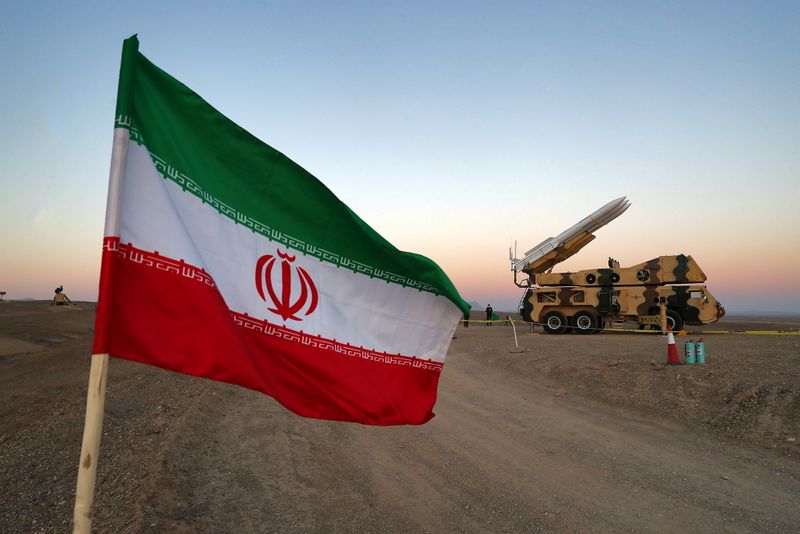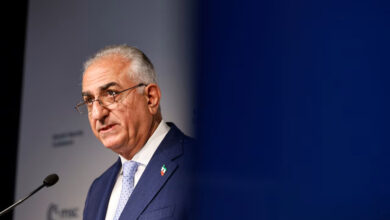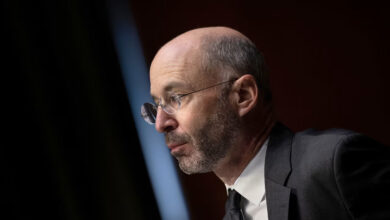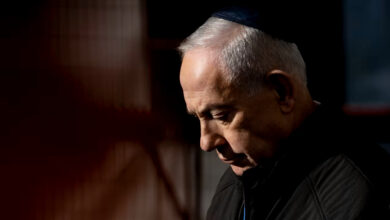
PARIS (Reuters) – Efforts to sketch out initial US and Iranian steps to resume compliance with the 2015 nuclear deal have stalled and Western officials believe Iran may now wish to discuss a wider road map to revive the pact, something Washington is willing to do.
US President Joe Biden’s aides initially believed Iran, with which they have not had direct discussions, wanted to talk about first steps toward a revival of the agreement that Biden’s predecessor, Donald Trump, abandoned in 2018.
The agreement eased economic sanctions on Tehran in return for curbs to the Iranian nuclear program designed to make it harder to develop an atomic weapon – an ambition Tehran denies.
Three Western officials said the Biden administration and Iran had mainly communicated indirectly via European parties to the deal – Britain, France and Germany – and that they believe Iran now wants to discuss a broader plan to return to the pact.
“What we had heard was that they were interested first in a series of initial steps, and so we were exchanging ideas on a series of initial steps” said a US official who, like others cited in this story, spoke on condition of anonymity.
“It sounds from what we are hearing publicly now, and through other means, that they may be … not interested in (discussing) initial steps but in a road map for return to full compliance,” he said.
“If that’s what Iran wants to talk about, we are happy to talk about it,” the US official added.
It is not clear, however, whether that is Iran’s stance.
Iran’s nuclear policy is ultimately determined by Supreme Leader Ali Khamenei, who said flatly on March 21 that “the Americans must lift all sanctions” before Tehran would resume compliance.
“If sanctions are … really canceled, we will return to our obligations without any problems,” Khamenei said. “We have a lot of patience and we are not in a hurry.”
‘NOT IN A RUSH’
Biden aides originally said that if Iran resumed compliance, the United States would too – a stance taken to mean Washington wanted Tehran to resume compliance first – but have since made clear that who goes first is not an issue.
While the Biden administration has also sought to project that it is in no hurry, it faces the reality that if there is no progress in April toward reviving the deal, Iranian officials in May will begin intense politicking for the June 18 presidential election.
“They are going to get into election period in about a month or so, but that’s not the end of the world for us,” said one Western diplomat. “We are making offers and they are making offers. It’s a slow process, but that’s OK. We’re not in a rush.”
Tehran rejected a report in the US publication Politico saying Washington planned this week to put forth a new proposal that would ask Iran to halt work on advanced centrifuges and the enrichment of uranium to 20 percent purity in return for undefined US sanctions relief.
“No proposal is needed for the US to rejoin the JCPOA,” the Iranian mission to the United Nations said on Twitter, referring to the deal formally named the Joint Comprehensive Plan of Action. “It only requires a political decision by the US to fully and immediately implement all of its obligations.”
It remains unclear whether Iran actually wants to engage, albeit indirectly, with the United States now or whether the supreme leader prefers to wait until after the election.
“I think there’s a fair bit of ambivalence from the supreme leader about rushing things,” said Henry Rome of the Eurasia Group.
Reporting by John Irish in Paris and Arshad Mohammed in St. Paul, Minnesota; Writing by Arshad Mohammed; Editing by Mary Milliken and Peter Cooney
FILE PHOTO: An Iranian flag is pictured near in a missile during a military drill, with the participation of Iran’s Air Defense units, Iran October 19, 2020. Picture taken October 19, 2020. WANA (West Asia News Agency) via REUTERS




